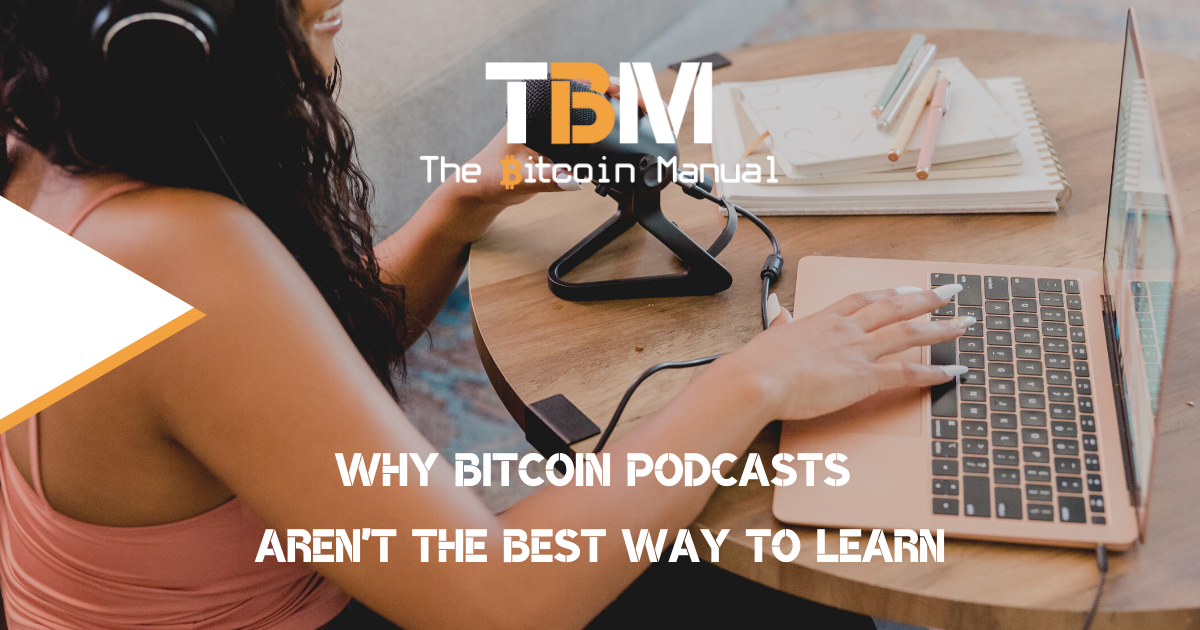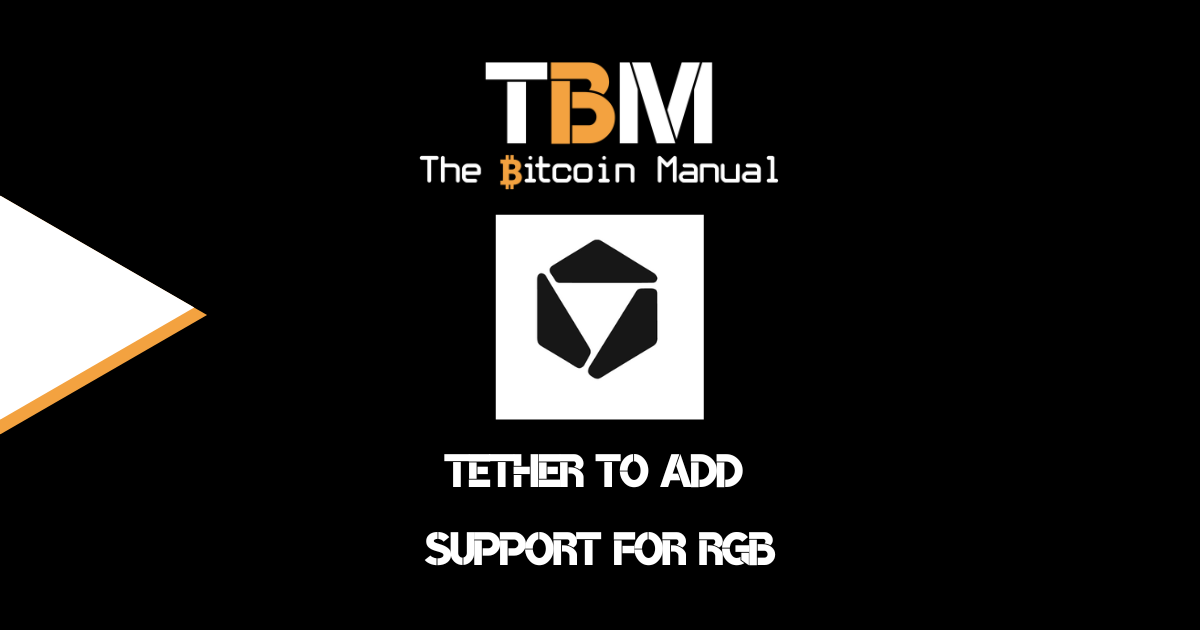I enjoy a good podcast while I work or work out; it keeps the day moving on and makes me feel like I am more constructive with my time. Like many of you, I want to learn as much about bitcoin as I can; if I am going to save in this form of money, I need to know what the risks are, what possible issues I could face, and how to improve my use of the assets I acquire.
Learning about bitcoin is not a straight and narrow path; there is no bitcoin school, nor should there be. The journey to learning about bitcoin is about shaping your path. Some will come in via economics, others via tech or politics, and then it’s up to you to venture into the other aspects of bitcoin.
For example, I think that regardless of your interest level in bitcoin, learning privacy and self custody is something everyone should take the time to focus on and practice. It doesn’t mean you need to become a shadowy super coder, but learning how to create keys, manage keys and limit your blockchain footprint and metadata creation will always come in handy.
Reading books, watching videos, and of course, reading podcasts should be part of your weekly or monthly bitcoin education. The more you learn, the more you grow your conviction, the less FUD will affect you, the better arguments you can make against naysayers, and most importantly, the better use you’ll gain from using products and services in the bitcoin ecosystem.
Podcasts are a great jumping-off point
If there’s one term I can’t stand, it’s DYOR (Do your own research). Yes, I use it myself, and I provide you with some of my own research on this blog and encourage you to check out multiple resources, but what we don’t talk about is knowing how to research.
How do you know a source is reputable, how do you know this isn’t an ad, and how do you know this is not outdated? What am I meant to search for?
Knowing how to research is as important as doing the research and refining your research skills, which will come with time. Calibrating your personal bull-shit-o-meter is vital when falling down the bitcoin rabbit hole.
Apart from those of you who read bitcoin books, most of us will turn to a search engine for our information. However, a search engine is only as good as the search terms you’re using, and where the hell am I meant to find these topics and search terms?
Well, I think podcasting is the ideal primer for that initial search phase. When you listen to a podcast, you’re falling into a conversion with experts who will mention terms and concepts, sometimes in great detail; other times, it might be a broad overview, but it doesn’t really matter.
The important part is that podcasts will help introduce you to concepts and terms you can use for your research. I am a big fan of podcasts and try to listen in regularly. However, as a consumer of bitcoin podcasts, I can say that the product is seriously starting to deteriorate.
The low barrier to entry
Podcasts have a pretty low barrier to entry; you can get away with doing it on your phone or having a recorded zoom call and slapping it on YouTube or Podcast feeds and calling it a day. The ease of creation and access means the supply of podcast content will always trend towards increasing, like anything without a hard cap.
There is nothing wrong with a low barrier to entry; it provides anyone with access; anyone can share their opinions, challenge ideas and provide a long-form conversation or explanation of their views and ideas, which is immensely valuable for discourse.
However, a lower barrier to entry also means quality control is down to the individual. It’s easy to record a conversation or ramble into a mic for an hour, but what sets podcasters apart is the effort they put in outside the initial conversation.
Some of the issues I’ve picked up with podcasters is:
- Podcasters having boring guests.
- Podcasters reading out articles.
- Podcasters with bad audio quality
- Podcasters offering no real commentary of their own.
- Podcasters interrupting guests.
- Podcasters are not editing out guff; we don’t need to hear.
- Podcasters are rambling on with no concept of time or worse, trying to stretch it out to force more YouTube ad break spots.
- Podcasters not preparing and having a structure.
- Podcasters do not bother to provide sources for claims in the show notes
- Podcaster becomes a typical thinkboi
If I see podcasters doing any of the sins listed above, I feel they’re not taking pride in their product, especially if this is a regular release. I would rather you spend time upping the production instead of trying to ship a new episode each week.
It’s an ad read with an interview between
Certain podcasts start excellent, the host is funny, smart, or a great interviewer, and the show begins to gather a sizable regular listenership. You can see the podcaster is interested in the topics, willing to learn, and they’re engaged, which drives the product, in my opinion. Then they start doing sponsored deals, and it all starts to deteriorate as the show monetises and sells out.
The sponsorship deals soft or hard censor the show in terms of criticism of their products or services, so you’re not getting the entire story behind certain companies or team members.
In other cases, the podcaster needs to meet a certain quota of listeners or ad reads. It just starts forcing in longer and longer ad breaks or upping the length of the podcast with no real quality or worse, grinding out, even more, shows to meet their obligations.
I am not knocking the hustle; you make your money, but don’t expect all of us to tune in and continue to find value in being pitched products you’ve probably never even used yourself. The ads start to drain the life out of the show until it’s nothing more than a husk of empty words in between promo reads.
It’s a breeding ground for drama farmers
Bitcoin is NEVER short of controversy and drama; of course, it will upset people with so many people trying to co-opt it, attack it, ban it or have negative feelings towards bitcoin. The fight for bitcoin has only begun, and that’s not going to change anytime soon. What I do have a problem with is these personal squabbles inside the podcast community, there’re usually not constructive and are more ego-driven than trying to argue the merit of a specific idea.
If you start to see podcast hosts wrapped up in pointless arguments on Twitter, having long monologues on how toxic the community is, or how hard it is to interview people for a living, I think it’s time you start to find a new source of information. The podcast becomes less about bitcoin and more about your feelings, and I don’t care about your feelings; I care about bitcoin. If your podcast is about nothing but you, how much attention you’re going to get, none.
Drama is a great way to put engagement on Twitter and YouTube, which will pump you up the feeds and get more views, but it seriously taints the product. I understand that podcasting is a view/download-based business, and you’re pandering to the algorithms and your sponsors and not the listeners, but then don’t expect me to be a listener for very long.
When podcasts devolve into a drama channel, to me, it loses a lot of their educational value, and like selling out to sponsors can impact the show, selling out to drama ruins the product.
Quantity over quality
The podcast game seems to be a little different from the video game; unlike videos that have the chance of going viral on one or other social media platform, setting up your account for future monetisation, podcasts seem to be about creating a massive library of content. The more episodes you have, the greater the chance you’ll hook someone and encourage them to listen to your back catalog of shows.
So podcasters are incentivised to keep making more episodes, especially if they need to maintain a ceratin listenership for sponsors. Bitcoin may move fast, but I would say that there are many weeks where nothing happens, and if you’re tasked with creating weekly or bi-weekly shows, you’re going to run out of material pretty fast.
You might burn through your guest roster earlier than you thought and start to rebook the same guests to try and maintain the output. You can easily see if a podcaster prioritises quality over quantity, and I am really starting to appreciate the ones who post less frequently or even infrequently since you’re assured that they’re making a podcast because they have something to say, not because they need to sell ad space or maintain views and engagement numbers.
Noise over signal ratios
I still think the podcast scene provides a lot of value, but that doesn’t mean it should be free of criticism, there is a lot of content for content’s sake, and like shitcoins, you need to learn to drown out the noise. It’s easy to listen to someone who distills the information for you, but that doesn’t mean you’re getting the full picture and you need to remember, we all have biases.
If you want to get the most out of podcasts I would suggest you find podcasters who share your interests, find guests that you like to listen to and follow those guests across shows, and find topics you want to learn more about.
I would recommend you use podcasts merely as an introduction and not as your primary source of truth.
Do you listen to bitcoin podcasts? Which one is your favourite? Let us know in the comments section down below.




